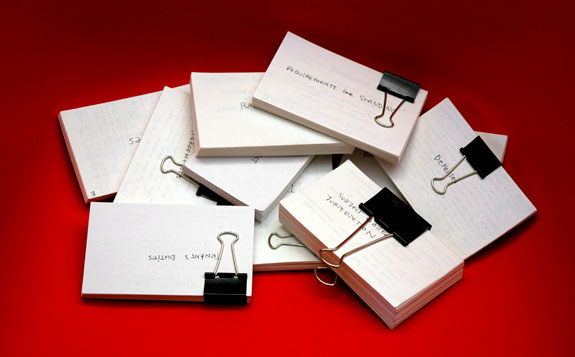Studying for the Bar
- by
- Dec 01, 2009
- Law School Advice, Legal Life
- Reviewed by: Matt Riley


Today’s guest blogger is former Blueprint student Laura Perry. After graduating from Georgetown Law, Laura took the bar in July of 2009 and is currently a law clerk for the Court of Appeals.
At 6:00p.m. on November 20, 2009, the 8,667 applicants who took the July 2009 California Bar Exam discovered whether they passed. Two days later, the results became public and the 44% who failed were forced to come out of hiding and bravely declare they would take it again or decide to change their name.
For those considering a legal career, it is important to know what you’re getting into. “Esquire” doesn’t mean anything unless you can actually practice law, which means you have to pass the bar. Regrettably, the bar is not that familiar dive where you wallowed in self pity/loathing for three years as you pondered why you are paying to endure law school, nor does “passing the bar” consist of an examination of your ability to chug beer or pick up members of the opposite sex. Instead, the bar is a state-sponsored examination every attorney must pass in order to practice law in that state.
Although each state has its own unique policies and procedures, every state’s process is lengthy. At some point, the applicant’s moral fitness is tested by a background check and possibly an investigation. Therefore, keep your nose clean and maintain records of everywhere you have lived and worked for the past ten years, otherwise this paperwork will be a real headache. In addition to the moral application, every state (but Maryland) requires you attain a state-specified score on the Multistate Professional Responsibility Exam (MPRE). This multiple-choice test is usually taken while you are still in law school (since the score remains valid for five years) and is typically easiest when you are currently enrolled in or have just completed your Ethics class, which is required by most law schools.
The bar examination will be at minimum two days; California’s is three. The multiple-choice portion, known as the “Multistate Bar Examination” (MBE), is the same in every state and is taken on the same day throughout the nation (the last Wednesday of every February and July). There is a morning and afternoon session, each lasting three hours and asking one hundred questions, totaling six hours and two hundred questions for the day. The topics covered: Evidence, Criminal Procedure/Law, Torts, Constitutional Law, Property, and Contracts. It’s basically the entire first year curriculum.
The rest of the test is specific to each state. In California, the Tuesday before and the Thursday after the MBE are the written portions. Each morning there is a three hour session where the applicant must write three essays, each dealing with particular aspects of California law (like, community property, corporations, civil procedure, etc.). Each afternoon is a three hour session where the applicant must show they can not only talk the talk, but also walk the walk by successfully completing a performance test. There, a “partner” will give the applicant (who plays the role of an associate) an assignment. Usually the assignment contains files of facts and of law and the applicant must sift through both and then complete the task.
While the LSAT tests if you can think and analyze, the bar additionally tests your ability to retain and apply information. In California, it’s a three-day closed-book test on anything and everything you might need to know as a lawyer. It’s a beast. Nevertheless, just like the LSAT, the strongest applicants are those who are mentally and emotionally prepared. Refraining from bursting into tears and running from the room is almost as important as remembering the nuances of a rule of evidence or the order of priority when there is a foreclosure on a property with multiple mortgages and only one is recorded on the title but there was notice.
To put it as politely as possible: studying for the bar = Sucksville, population: you. I took a bar preparation course and decided I was going to do everything in my power so I would only have to take this sucker once. I signed up for the ipod version of the course so I would not have to waste time driving to and from class and stayed home for two months. The only person I spoke to was my mother. I studied from 6am until 11pm every day without a break. I flipped through flashcards while I ate my meals and listened to lectures when I ran. I even had charts in page protectors posted in my shower so I could quiz myself while I washed my hair.
Yes, I over-studied. And yes, I passed.
Search the Blog

Free LSAT Practice Account
Sign up for a free Blueprint LSAT account and get access to a free trial of the Self-Paced Course and a free practice LSAT with a detailed score report, mind-blowing analytics, and explanatory videos.
Learn More
Popular Posts
-
logic games Game Over: LSAC Says Farewell to Logic Games
-
General LSAT Advice How to Get a 180 on the LSAT
-
Entertainment Revisiting Elle's LSAT Journey from Legally Blonde








